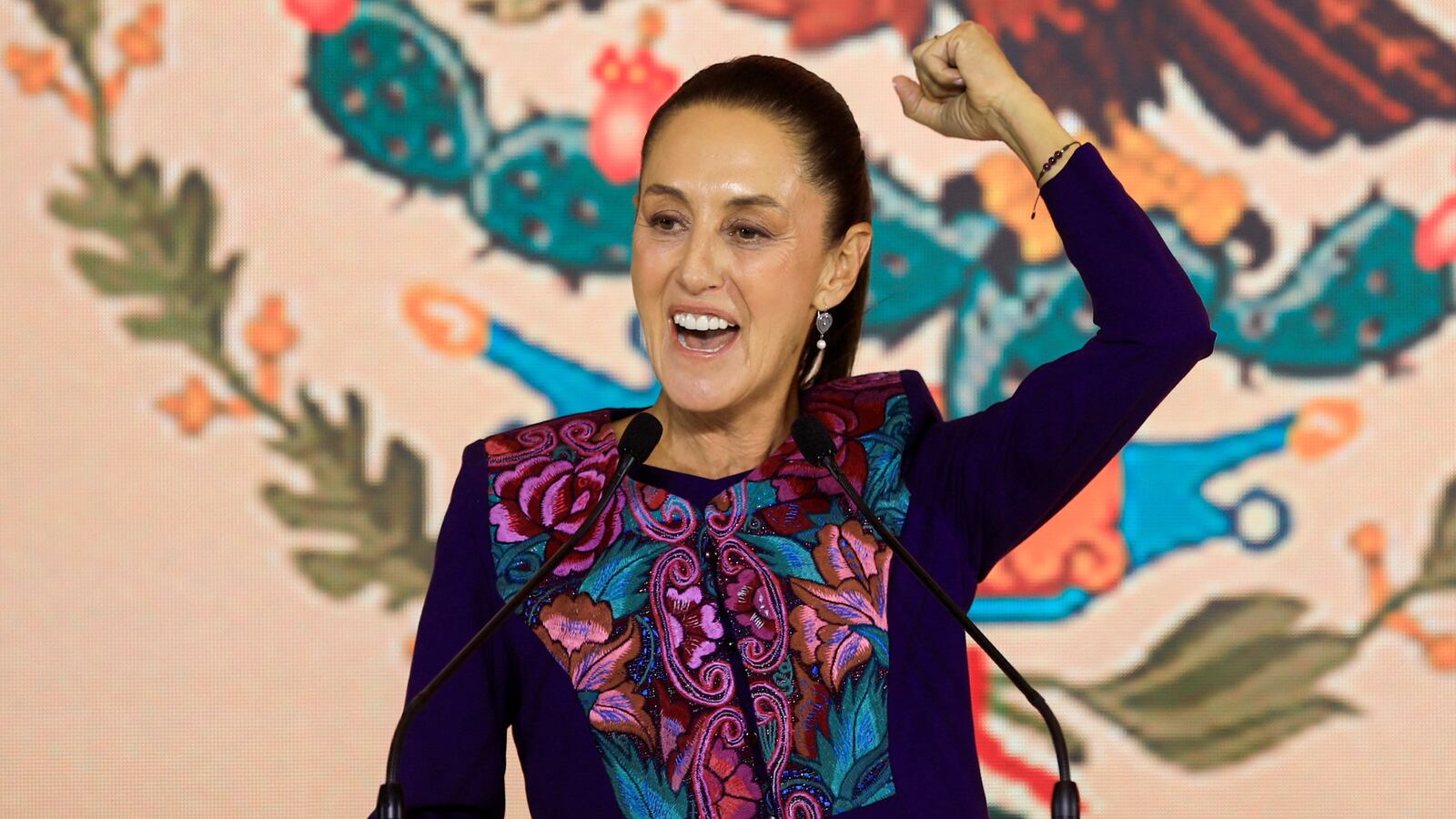Claudia Sheinbaum secured a landslide victory and will become the first female president of Mexico, according to official projections Monday.
The 61-year-old climate scientist and former mayor of Mexico City took at least 58.3 percent of the vote, according to early results, a lead of almost 30 points over her main competitor, businesswoman Xóchitl Gálvez. Sheinbaum, a leftist, will also become the first person with Jewish heritage to lead the predominantly Catholic country when she takes over from her mentor and Mexico’s incumbent President Andres Manuel López Obrador in October.
Mexico’s ruling coalition was also on course to potentially seal a two-thirds supermajority in both houses of Congress which would allow it to pass constitutional reforms without requiring the support of the opposition.
“For the first time in the 200 years of the republic I will become the first woman president of Mexico,” Sheinbaum told cheering supporters after her victory became apparent. She also promised: “I am not going to let you down.”
Sheinbaum campaigned on promises to continue the “advances” made by López Obrador in helping the poorest people in Mexican society. He gained massive popularity by doubling the minimum wage and reducing unemployment but faced criticism for failing to tackle violence throughout the country.
“We have demonstrated that Mexico is a democratic country with peaceful elections,” Sheinbaum said in her victory speech, though dozens of candidates were murdered in what has been described as the bloodiest election in Mexico in modern times. Some 37 candidates were assassinated before Sunday’s vote, according to a Reuters count, with a reported 828 further non-lethal attacks on candidates.
Sheinbaum previously served as the first female mayor of Mexico City. She held the post between 2018 and 2023, when she stepped down in order to seek the presidency.
The granddaughter of Jewish immigrants who fled the Holocaust, Sheinbaum’s parents were both scientists and she holds a doctorate in energy engineering. Sheinbaum had a career in academia before entering politics which included being part of a panel of United Nations climate scientists who shared a Nobel Peace Prize with Al Gore.
When she takes office on Oct. 1, Sheinbaum will face a series of serious challenges beyond Mexico’s problems around cartel violence.
They include negotiating with the U.S. over migrants crossing Mexico’s northern border—conversations which could become more tense if Donald Trump wins his own presidential election in November, with the Republican promising to launch the largest deportation operation in American history if he returns to the White House.
Sheinbaum will also have to tackle shortages of water and electricity, as well as dealing with the state-owned oil company Pemex which is mired in enormous debts which have strained public finances.
“Today is a day of glory because the people of Mexico freely and democratically decided that Claudia Sheinbaum becomes the first female president in 200 years of independent life of our Republic,” López Obrador wrote in a social media post celebrating his successor’s victory. “Congratulations to all of us who have the joy of living in these stellar times of pride and transformation.”







